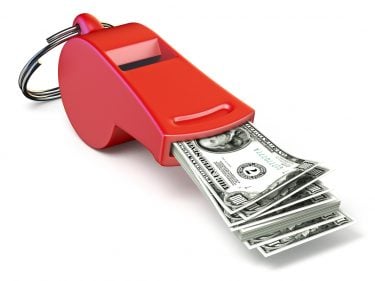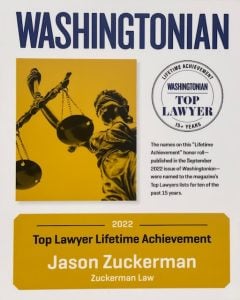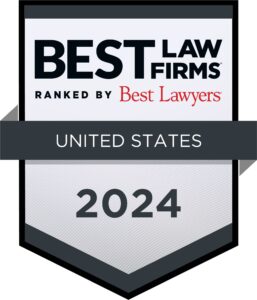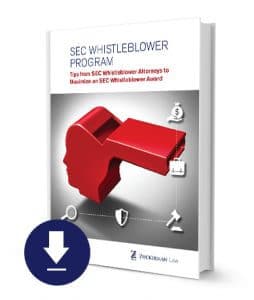 The best way to make your tip useful is to provide specific, timely, and credible information.
The best way to make your tip useful is to provide specific, timely, and credible information.
As noted in an annual report of the SEC OWB, “Whistleblower tips that are specific, credible, and timely, and that are accompanied by corroborating documentary evidence, are more likely to be forwarded to investigative staff for further analysis or investigation. For instance, if the tip identifies individuals involved in the misconduct, provides examples of particular fraudulent transactions, or points to non-public materials evidencing a fraud, the tip is more likely to be assigned to Enforcement staff for investigation.”
And orders granting whistleblower awards indicate that in determining whether a whistleblower’s information “significantly contributed” to the success of an enforcement action, the SEC will consider whether the information was “meaningful” in that it “made a substantial and important contribution” to the success of the covered action. For example, the SEC will consider a claimant’s information to have significantly contributed to the success of an enforcement action if it allowed the SEC to bring the action in significantly less time or with significantly fewer resources, or to bring additional successful claims or successful claims against additional individuals or entities. Providing non-privileged documents to the SEC can enable the SEC to conserve resources in investigating a fraud scheme.
A recent decision in Erhart v. Bofi Holdings clarifies that whistleblowers can disclose to the SEC “appropriate” company documents that are “reasonably necessary” to disclose fraud. But the judge warned that wholesale stripping of confidential documents (“vast and indiscriminate”) may not immunize the whistleblower from potential liability.
A whistleblower should avoid disclosing to the SEC information protected by attorney-client privilege (e.g., documents, including emails, that reveal advice from inside or outside counsel).
For more information about whistleblower rewards and bounties, contact the SEC whistleblower lawyers at Zuckerman Law at 202-262-8959.






Click below to hear SEC whistleblower lawyer Matt Stock’s tips for SEC whistleblowers:
To learn more about the SEC Whistleblower Program, download Zuckerman Law’s eBook: SEC Whistleblower Program: Tips from SEC Whistleblower Attorneys to Maximize an SEC Whistleblower Award:
SEC Whistleblower Rule Excludes Only Information Obtained in Violation of Criminal Law
As explained in the May 2011 SEC release (Release No. 34-64545) adopting the rules governing the SEC Whistleblower Program, there are very few restrictions on the information that a whistleblower can submit to the SEC:
“Under Rule 21F-4(b)(4)(iv), a whistleblower’s information will be excluded from the definition of “independent knowledge” if he or she obtained the information by a means or in a manner that is determined by a domestic court to violate applicable Federal or state criminal law.
We continue to believe that this exclusion is consistent with the intent of Congress that the whistleblower award program not be used to encourage or reward individuals for obtaining information in violation of Federal or state criminal law—even if the information might otherwise assist our enforcement of the Federal securities laws. Nonetheless, we have decided that the exclusion will only apply where a domestic court determines that the whistleblower obtained the information in violation of Federal or state criminal law. We believe that Federal and state courts are better positioned than we are to determine whether a whistleblower obtained the information in violation of criminal law.
We have determined not to extend the exclusion to cover information obtained in violation of domestic civil or foreign law, or judicial or administrative protective orders. Commenters raise a number of persuasive points supporting and opposing these additional exclusions. With respect to foreign law, we recognize that other countries often have legal codes that vary greatly from our own, and we are not in a position to decide as a categorical rule when it is appropriate to deny an award based on foreign law. With respect to material that may have been obtained in violation of domestic civil law, we believe that, on balance, these exclusions would sweep too broadly and be difficult to apply consistently given the patchwork of state and municipal civil laws that might be implicated.
Finally, we find persuasive the comments that protective orders are frequently negotiated between parties to private litigation and are generally intended to protect proprietary information against public disclosure or improper use. It would be against public policy for litigants to obtain a protective order, or to seek enforcement of such an order, for the purpose of preventing the disclosure of information regarding violations of law to a law enforcement agency. For this reason, we have determined not to exclude whistleblowers who provide us with information that an opposing party may contend comes within the scope of a protective order.”
How to Successfully Navigate the SEC Whistleblower Process
Steps to Take to Obtain an SEC Whistleblower Award
SEC orders granting whistleblower awards reveal the actions a whistleblower can take to improve their chances of securing an SEC whistleblower award:
Awarding $50 million to a whistleblower: “[W]e positively assessed the following facts: (i) Claimant 1’s information was highly significant and Claimant 1 provided first-hand observations of misconduct by the Company that was previously unknown to the staff; (ii) Claimant 1 laid out in detail substantial aspects of the scheme and provided a roadmap for the investigation; and (iii) Claimant 1’s information helped the Commission further significant law enforcement interests as Claimant 1’s information allowed the Commission to bring an enforcement action that, returned a significant amount of money to those harmed by the Company’s misconduct.” Release No. 89002 (June 4, 2020).
Awarding $28 million to a whistleblower: “(1) Claimant reported significant information to the Commission which caused the company to initiate an internal investigation and factored into the staff’s decision to open an investigation into the company’s Redacted ; (2) the information reported by Claimant saved Commission time and resources; (3) Claimant provided assistance to staff in the form of an interview, testimony and identification of a key witness; and (4) there are important law enforcement interests here, as Claimant’s information supported certain Redacted charges against a publicly traded company and its executives; and (5) Claimant’s information bears a close nexus to certain charges brought by the Commission. In determining the appropriate award percentage, we also considered that while Claimant’s information was significant, the Covered Action included charges that accounted for the majority of the Redacted reported by the company, which was not attributable to information provided by the Claimant, but rather related to other alleged misconduct by the company.” Release No. 90317 (Nov. 3, 2020).
Awarding $27 million to a whistleblower: “[W]e positively assessed the following facts: (i) Claimant’s information was significant as it allowed Commission staff to uncover hidden conduct occurring, in part, overseas; (ii) Claimant provided a substantial amount of ongoing assistance and cooperation by meeting with staff numerous times and providing relevant documents and critical investigative leads that advanced the investigation and saved the Commission a significant amount of time and resources; (iii) Claimant’s information helped the Commission further significant law enforcement interests by enabling the Commission to bring an action addressing a particular form of misconduct Redacted ; and (iv) Claimant repeatedly and strenuously raised Claimant’s concerns internally. In determining the appropriate award percentage, we also
considered whether Claimant unreasonably delayed in reporting the information to the Commission. We are mindful of the importance of whistleblowers reporting their information to the Commission promptly . . . However, we determined that no reduction for unreasonable reporting delay was warranted under the specific facts and circumstances of this case due to the strength of the positive factors and the fact that Claimant repeatedly and tenaciously objected to and escalated Claimant’s concerns about misconduct within Claimant’s organization.” Release No. 88658 (April 16, 2020).
Awarding $22 million to a whistleblower: “[W]e positively assessed the following facts: (1) Claimant 1 was the first to alert Enforcement staff to the potential wrongdoing, and Claimant 1’s information, coupled with Claimant 2’s information, prompted the opening of the investigation; (2) Claimant 1 provided substantial ongoing assistance to Enforcement staff during the investigation that saved Commission time and resources; and, (3) Claimant 1 persistently internally reported and elevated Claimant 1’s concerns in an effort to remedy the conduct. Release No. 90049 (Sept. 30, 2020).
Awarding $18 million to a whistleblower: “[W]e positively assessed the following facts: (1) Claimant’s information was significant in that it alerted Commission staff to potential securities violations at the firm and prompted an examination by staff in the Commission’s Office of Compliance, Inspections, and Examinations; (2) Claimant provided assistance to staff during the examination; (3) there are important law enforcement interests here as the Covered Action resulted in millions of dollars being returned to retail investors; (4) Claimant suffered hardships as a result of Claimant’s internal reporting; and, (5) Claimant reported multiple times internally in an attempt to immediately correct the problem.” Release No. 88759 (April 28, 2020).
Awarding $10 million to a whistleblower: “[W]e positively assessed the following facts: (1) Claimant 1’s information caused the Responsible Investigative Staff to open the Investigation; (2) it was Claimant 1’s information and ongoing assistance that led directly to almost every factual finding and charge against the Company; (3) Claimant 1 provided substantial assistance to the Responsible Investigative Staff, providing them with key evidence, communicating over a dozen times with the Responsible Investigative Staff, helping to decipher communications and distill complex issues, and saving significant Commission time and resources; (4) Claimant 1 raised concerns about the Company’s conduct internally, and, after determining the Company would not remedy the problem, reported Claimant 1’s concerns to the Commission; and (5) the law enforcement interests are very high.” Release No. 34-90284 (Oct. 29, 2020).
Awarding $3.5 million to a whistleblower: “In reaching this determination, the Commission considered that Claimant alerted Commission staff of alleged securities laws violations, prompting Enforcement staff to expand an existing investigation into an additional geographic area. Claimant, a foreign national, also provided significant assistance to Commission staff by traveling to meet in person with staff, identifying an important witness, and providing multiple supplemental submissions that assisted the Commission in bringing the charges in the Covered Action.” Release No. 92621 (Aug.10, 2021).
Awarding $2.4 million to a whistleblower: “In reaching this determination, the Commission considered that Claimant alerted Commission staff of alleged securities laws violations after initially reporting . . . concerns internally to Claimant’s employer, prompting staff to open an investigation that led to the Covered Action. Claimant also provided significant assistance by meeting in person with Commission staff, providing documents, and identifying potential witnesses.” Release No. 92622 (Aug. 10, 2021).
Awarding $2 million to a whistleblower: “In reaching this determination, the Commission considered that Claimant alerted the Commission to the on-going fraud prompting the opening of an investigation into the alleged conduct, participated in multiple voluntary interviews with Commission staff, and provided documents and additional information that assisted the staff in its investigation, saving Commission staff time and resources.” Release No. 92587 (Aug. 6, 2021).
Awarding $1 million to whistleblower: “(i) Claimant’s tip caused the opening of the Commission’s investigation and was the underlying source that formed the basis for the charges in the Covered Action; (ii) Claimant provided ongoing assistance to Commission staff, including by participating in two interviews with Commission staff, helping staff to understand the key players in the investigation, and providing information that was not otherwise accessible to staff, which conserved significant staff time and resources; (iii) there was substantial law enforcement interest in the information; and (iv) Claimant suffered personal and professional hardships.” Release No. 92247 (June 24, 2021).
Awarding $4 million to a whistleblower: Claimant provided extraordinary assistance to Enforcement staff, including: (1) participating in hours of telephonic interviews and exchanging more than 125 emails with staff; (2) providing documents and explaining their significance to staff; and (3) identifying key witnesses. Claimant also took personal and professional risks by raising concerns internally in an effort to remedy the misconduct.” Release No. 92210 (June 21, 2021).
Awarding $2.2 million to a whistleblower: “The information in Claimant’s submission was of such high quality that staff was able to draft document requests based on Claimant’s information without speaking with Claimant. In addition, Claimant took personal and professional risks by raising concerns internally in an effort to remedy the misconduct, and Claimant’s information helped cause the return of millions of dollars to harmed clients.” Release No. 91163 (Feb. 19, 2021).
Tips to Qualify for an SEC Whistleblower Award


The SEC is looking for specific, credible and timely information about violations of federal securities laws. The more details of which the lawyer can provide the better. However, the SEC is not looking for all types of information. For example, the SEC does not want any documents that may violate the attorney client privilege.





